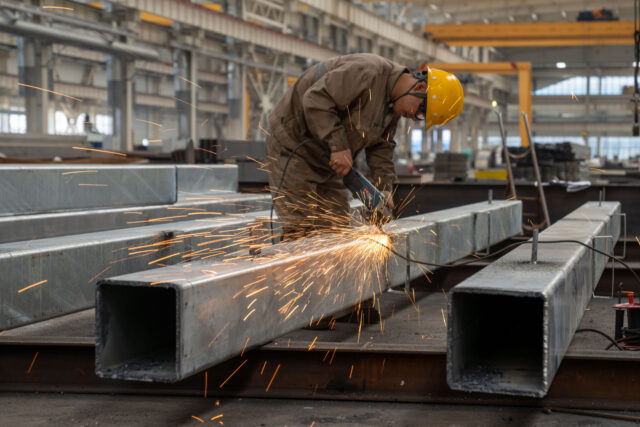The Biden administration is finally cracking down on Mexican imports that use steel or aluminum from China by imposing tariffs, aiming to prevent the metals from sneaking into the U.S. duty-free.
A 25 percent tariff will hit Mexican imports containing Chinese steel, while products with Chinese aluminum face a 10 percent duty, the White House announced Wednesday.
This move builds on tariffs originally imposed by former President Trump, who said duties on aluminum and steel were necessary for national security. The metals tariffs were met with widespread and harsh criticism, including claims that they would raise consumer prices.
In the years that followed, however, consumer prices did not rise significantly, forcing many critics to admit they were wrong. When inflation did soar after President Biden took office, the aluminum and steel tariffs played no significant role in rising prices.
Under the U.S.-Mexico-Canada trade deal, most Mexican products typically enter the U.S. without tariffs. But steel and aluminum must be melted and poured in Mexico or Canada to qualify for duty-free treatment.
American steelmakers have been up in arms, claiming China is dodging existing tariffs by funneling its metals through Mexico. The U.S. has accused China of flooding the market with unfairly priced steel and aluminum, buoyed by government subsidies that violate international trade rules.
“Chinese steel and aluminum entering the U.S. market through Mexico evades tariffs, undermines our investments, and harms American workers in states like Pennsylvania and Ohio,” said Lael Brainard, the director of the White House’s National Economic Council, according to the New York Times.
Steel and aluminum producers have been pushing Mexico to better monitor the origins of materials used in exports. Some U.S. manufacturers say they’ve felt the squeeze from cheap Mexican imports.
Mexico is the second largest source of imported steel in the U.S. market, after Canada. The aluminum tariffs will apply not just to metal produced in China but also to aluminum from Russia, Iran, or Belarus.
The Associated Press reports:
The financial impact of the tariffs is likely somewhat modest, though, given the volumes of steel and aluminum being routed this way through Mexico.
Administration officials said the U.S. imported 3.8 million tons of steel last year from Mexico, with 13% of that having been poured or melted outside that country. Similarly, the U.S. imported 105,000 metric tons of aluminum from Mexico and only 6% was smelted or cast outside that country.
Still, the issue could be politically relevant. Sen. Sherrod Brown, D-Ohio, has called for stopping Mexican steel imports, saying that a “surge” from that country is a threat to U.S. steelworkers and a way to evade tariffs.
Brown is seeking reelection against Republican Bernie Moreno, a wealthy businessman from Cleveland. Ohio was once a political bellwether, but it has voted for Trump in the previous two presidential elections.
Implementation of the new tariffs begins Wednesday with the announcement.
The new tariffs are clearly intended to steal some thunder from Trump, who is seen as much better on economic issues and has described himself as a “tariff man.”
President Biden and Mexican President Andrés Manuel López Obrador released a joint statement about the move.
“To improve transparency of the origins of its imports, Mexico is requiring importers to provide more information about the country of origin of steel products. This action adds to Mexico’s recent tariff increases on steel from non-free trade agreement countries,” the two presidents said.

COMMENTS
Please let us know if you're having issues with commenting.